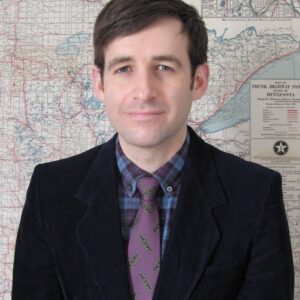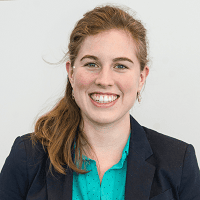The AHA is pleased to announce the recipients of the J. Franklin Jameson Fellowship in American History and the Fellowship in Aerospace History.
The Jameson Fellowship is offered annually to support research at the Library of Congress by scholars who have received a PhD within the past seven years. Fellows are awarded a stipend of $5,000 to spend two to three months in residence in Washington, DC. The winner of the 2016–17 fellowship is Joseph Malherek.
Malherek earned his PhD in 2015 from George Washington University’s Department of American Studies and was the 2015–16 NEH Postdoctoral Fellow at the Consortium for History of Science, Technology, and Medicine. His dissertation, “Émigré Scientists of the Quotidian: Market Research and the American Consumer Unconscious, 1933–76,” concerns the transformation of American consumer desire in the 20th century. Malherek is now revising his dissertation into a book manuscript, From Bauhaus to Maxwell House: Émigrés and the Making of American Consumer Culture, 1933–1976.

Joseph Malherek
From Bauhaus to Maxwell House tells the story of émigrés who used European methods of social science to shape American consumer culture. These business professionals—many of whom were left-wing, German-speaking Jews—fashioned new marketing strategies and design techniques informed by Freudian theory, Bauhaus modernism, and empirical social research. Emphasizing that commercial applications of European methods “created the conditions for the reproduction of individuality on a mass scale,” Malherek shows that the Cold War distinction between free-market capitalism and state socialism is not as absolute as many believe.
Malherek will begin his residency at the Library of Congress this autumn, dividing his time between six manuscript collections. He plans to consult trade journals as well as the personal and professional papers of the architects, designers, and marketers who are the key players in his study. This archival research, made possible through the Jameson Fellowship, promises to make remarkable contributions to business, cultural, and intellectual history.
>The Fellowship in Aerospace History funds six to nine months of advanced research in any aspect of aerospace history. A stipend of $20,000, supported by the National Aeronautics and Space Administration (NASA), may be used to take advantage of resources at the Smithsonian, NASA headquarters, and other collections worldwide. The winner of the 2016–17 NASA fellowship is Greg Eghigian.

Greg Eghigian
Eghigian is associate professor of modern history and former director (2007–12) of the Science, Technology, and Society Program at Penn State University. He received his PhD in 1993 from the University of Chicago. His research mostly concentrates on the interactions between science and the state, such as the ways Western civilization has grappled with mental illness. A forthcoming publication, The Routledge History of Madness and Mental Health, which Eghigian edited, is scheduled for release in 2017.
As a NASA fellow, Eghigian will work on his next book, After the Flying Saucers Arrived: A History of the Rise and Fall of the UFO and Alien Contact Phenomenon. The rise and decline of alien and UFO reports has been well covered by social scientists and folklorists over the past half century but has been largely ignored by historians. After the Flying Saucers Arrived will represent the first English-language monograph on extraterrestrial contact by an academic historian since 1975. It will also be the first to contextualize the topic as a global phenomenon. Eghigian argues that Cold War–era reports of UFO and alien contact stemmed from more complex cultural concerns and developments than previously believed, raising new questions about the human relationship with science and technology.
The NASA fellowship is nonresidential, allowing scholars to pursue a broad range of research opportunities. Eghigian will begin his term in January 2017, with the goals of writing book chapters and finishing archival work. He will examine materials on UFO witnesses, debunkers, and other public voices in collections at the Library of Congress, the National Air and Space Museum Library, and the UK Ministry of Defence UFO Files in London. Eghigian’s project should prove to be a foundational work that will at once revive scholarly interest in alien phenomena and be accessible to a broad readership.
Applications for next year’s Jameson and NASA fellowships will be available on the AHA website (www.historians.org) in the fall.
This work is licensed under a Creative Commons Attribution-NonCommercial-NoDerivatives 4.0 International License. Attribution must provide author name, article title, Perspectives on History, date of publication, and a link to this page. This license applies only to the article, not to text or images used here by permission.



